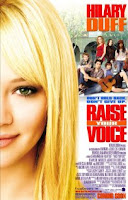I’ve been looking for some general tips about improving English speaking skill and how to communicate more easily and effectively. Check what I’ve got for you!
- Practise where you can, when you can. Any practice is good – whether you speak to someone who is a native English speaker or not.
- It's important to build your confidence. If possible, use simple English sentence structure that you know is correct, so that you can concentrate on getting your message across.
- Try to experiment with the English you know. Use words and phrases you know in new situations. Native English speakers are more likely to correct you if you use the wrong word than if you use the wrong grammar. Experimenting with vocabulary is a really good way of getting feedback.
- Try to respond to what people say to you. You can often get clues to what people think by looking at their body language. Respond to them in a natural way.
- Try NOT to translate into and from your own language. This takes too much time and will make you more hesitant.
- If you forget a word, do what native English speakers do all the time, and say things that 'fill' the conversation. This is better than keeping completely silent. Try using um, or er, if you forget the word.
- Don't speak too fast! It's important to use a natural rhythm when speaking English, but if you speak too fast it will be difficult for people to understand you.
- Try to relax when you speak – you'll find your mouth does most of the pronunciation work for you. When you speak English at normal speed, you'll discover that many of the pronunciation skills, such as linking between words, will happen automatically.
- Get over any fear you might have of making mistakes. You will make mistakes.
- Be patient with yourself. Learning any language can be frustrating, but frustration won't help you, so let it go.
- Grasp every opportunity you have to speak with people in English. Talk to friends who are also learning English. Go out together for coffee and only speak English to each other!
- Read short stories out loud and try to see, say and hear the words to reinforce your memory.
- Record yourself and play it back later, how does it sound?
Remember, when speaking English…
Try to become less hesitant and more confident.
Don't be shy to speak – the more you do it, the more confident you'll become.
Remember to be polite – use "please" and "thank you" if you ask someone to do something for you.























